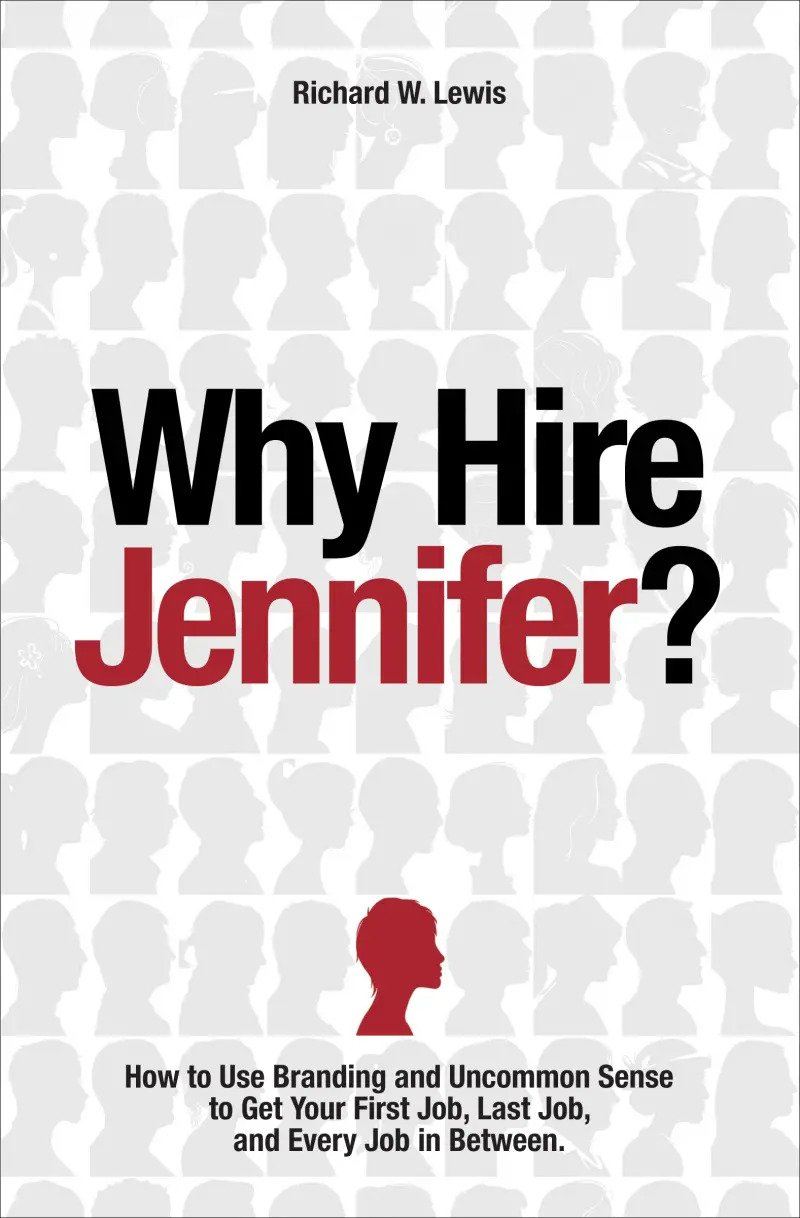Prominent brand strategist Richard Lewis says that to find the job of your dreams, it all boils down to smart marketing. His thoughts on parents, connections, and shedding your SAHM skin.
 No matter how well “planned” your family was (seriously, I know people who planned to have their first child at age 30, then did so; or who always knew they’d have three kids spaced exactly two years apart—and they do), there’s no real way to plan your career arc when children are in the picture. Especially in today’s economy, even taking parental leave for six weeks is no guarantee of a great fit when returning to work (hey, this writer got laid off from a longtime position three days after delivering my son).
No matter how well “planned” your family was (seriously, I know people who planned to have their first child at age 30, then did so; or who always knew they’d have three kids spaced exactly two years apart—and they do), there’s no real way to plan your career arc when children are in the picture. Especially in today’s economy, even taking parental leave for six weeks is no guarantee of a great fit when returning to work (hey, this writer got laid off from a longtime position three days after delivering my son).
Especially for those who have taken extended time away from their careers to focus on parenting, re-entering the workforce can be not only daunting but seemingly impossible. Have you stayed current with technology (beyond Facebook, that is)? Are your old networks still in place? What salary should you possibly be seeking? Questions abound, and all too often, so does insecurity. Among the valuable advice in Richard Lewis’s new book Why Hire Jennifer? How to Use Branding and Uncommon Sense to Get Your First Job, Last Job, and Every Job in Between (Amazon) is this gem: “You belong here. You’ve earned the interview. You’re not a fake.”
 We’ve been bombarded over the past year with treatises on why we should or should not “lean in,” all food for thought and of merit when discussing the state of our union when it comes to mothers who work outside the home. But when it comes right down to it, what many really want to know is: How the heck do I get a job now that my kids are older (or now that you’re ready in whatever way that matters to you)? Why Hire Jennifer? takes readers through the steps of finding their own voices—and how to use that voice, coupled with a strategic job search, to make them more attractive to employers.
We’ve been bombarded over the past year with treatises on why we should or should not “lean in,” all food for thought and of merit when discussing the state of our union when it comes to mothers who work outside the home. But when it comes right down to it, what many really want to know is: How the heck do I get a job now that my kids are older (or now that you’re ready in whatever way that matters to you)? Why Hire Jennifer? takes readers through the steps of finding their own voices—and how to use that voice, coupled with a strategic job search, to make them more attractive to employers.
Lewis, a Westchester father and marketer perhaps best known for his iconic ad work for Absolut vodka (“Absolut genius”), says: “We are all different peeps. It’s great to follow another’s guidelines but we each have to find the path we are comfortable with. My wife, Isabel, returned to work very quickly after each of our three kids were born. This was what she wanted to do. This was her decision, and I always tried to support it. Make sure your support system also has faith in your decisions.” Lewis’s book, while primarily aimed at new graduates, is applicable to anyone—and his experience both as a father and a brand specialist inform his approach: “Excavate to find what makes you special (and happy) and run with it. Talk to people who are doing what you want to be doing,” he says. It all boils down to smart marketing.
How might you guide a person who has spent the last ten years out of the traditional workforce—who identifies most closely now as a parent and may feel left behind?
It’s a shame mothers get the short end of the stick when they want to return to work. The good news is this prejudice is now changing and in decline. I personally know half a dozen moms who have returned to work, many on their own terms.
There is much written about the basic needs before a mom can proceed: safe childcare, cooperative husband/partner, sympathetic company, etc. Let’s assume for this conversation the job candidate has all or most of those components—it then becomes a question of, How do we massage the candidate’s mind to giver her the confidence to proceed?
Parents learn new skills that are applicable at work. They include putting out ‘fires,’ prioritizing, and smiling in spite of adversity. They learn when to reward and when to hold back praise. They learn how to clean up a mess, figuratively and literally. They learn how to juggle responsibilities. They learn the power of teamwork. They learn how to get out of bed every morning and do it all over again. These are all skills that are applicable on the job.
Critical to mention: Parents have to keep up with the technology that has transformed and culture that has transformed work—Smartphones that deliver email, apps, texting, and yes, social media. It’s not going away, it’s just going to get more focused.
I love this quote from the book: “Success should be seen through your eyes, not those of your parents, friends, or people laying in wait to judge you.” What advice do you have for helping people get to the point of truly defining their own version of success?
This is really a tough question for most of us. Why? Because a lot of well-meaning, smart people still give us “advice” and feedback that can muddle us. We have to learn to shut out the noise and still love these people. I know parents are extra-sensitive because we feel we must be doing something wrong and someone else is doing it better, faster, smarter. I like to say, “Life is not a race,” which means we have to be satisfied and comfortable with our own pace. It also means we are the arbiters of our success. We each stand on our own two feet and are fortunate to be able to tell those feet what direction to walk.
What type of networking do you recommend to a full-time parent wanting to re-enter the workforce?
We all have some connections but we exhaust them quickly. This means we probably know a few people who can “help” us forward, but then what? Which is why I recommend creating new connections through our own moxie and hard work. Reach out to strangers: people at firms where we want to work and make our case. Be the go-getter. And if we have personal contacts we want to transform into business contacts, then speak in a business voice. For instance, and I apologize for the apparent sexism here: “Betty, did you know I’m planning to return to work in marketing? I’d like to arrange a meeting with your Ted [Betty’s husband]. What’s the best way to contact him?”
You suggest that everyone create a personal inventory—and say it’s easier than it seems. What of the person who feels their list characteristics has nothing that sets them apart?
Everyone has something that either sets them apart or makes them special. Like Geico, give me 15 minutes and I’ll figure it out! Seriously, as I write in Why Hire Jennifer?, it’s not simply the activity or talent that makes you special or desirable by a firm, it’s the attributes particular to that activity—such as competitiveness, teamwork, or passion—that make you special.
You write: “Since there is but one No. 1, aren’t we all underdogs?” What advice do you have for a parent who has been out of her industry for a decade or more focusing on parenting, who feels like the biggest underdog of all?
We have to try harder, or as I prefer to say, try smarter, through marketing and job strategy. Sometimes it’s necessary for parents and, really, all adults to ‘reset’ their qualifications. Which means rather than trying to pick up where they left off, perhaps they should return to school, get a new degree or certificate, take advantage of the continuously expanding world of MOOCs (great acronym and very democratic, by the way—even Harvard Business school is starting a program!).
Do you have any words of wisdom for parents who are frustrated by their long job search?
Buckle up your courage belt. Smile. Enthusiasm. And most important, preparation. Study the company and the persons interviewing you. Form opinions and don’t be afraid to express them. Remember: These people make mistakes every day, just like the rest of us.
Mom has gotten the job! How should she present herself? She wants to live up to the brand she created when interviewing, and also keep her two distinct roles (paid professional and parent) distinct and in perspective.
The good news is there are a lot of parents in the workforce, so they won’t be alone. I believe parents, particularly moms (as they still bear the brunt of parenthood) have to set priorities, gently but firmly. Most, if not all, companies understand that family comes first. Once a job is offered the parent can mention there may be circumstances that require the occasional early departure or late arrival. Also, job candidates can find out how companies comport themselves by asking around using some subtlety during the interviewing process, and also by checking what some websites (such as Glassdoor) to see what employees have to say about the firms.
Have you ever felt any pressure in the juggling act that exists between work and home?
During my “corporate” life I was a parent for 22 of 27 years. I decided early, even when I was just an account executive, that I wasn’t going to be one of those dads who apologizes for missing the play, baseball game, or event. I even served as “Class Dad” when my 6-year old daughter asked me to (and I still get to brag about it). My philosophy has always been to set boundaries and to stick to them. People respect that.
Richard Lewis, one of the chief architects behind the famed Absolut advertising campaign (whose origins are detailed in Lewis’s “Absolut Book”), is the author most recently of “Why Hire Jennifer: How to Use Branding and Uncommon Sense to Get Your First Job, Last Job, and Every Job in Between.” Lewis developed a popular undergraduate course at NYU, where he teaches, called “Branding: Companies, Products, & People.” He is a parent of three children and lives in Dobbs Ferry.



















